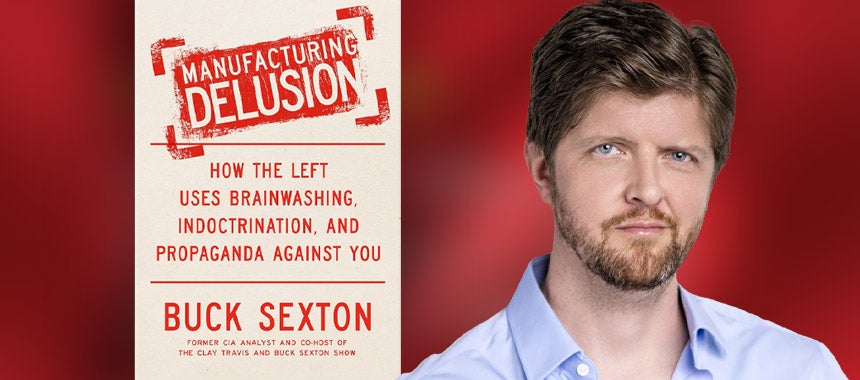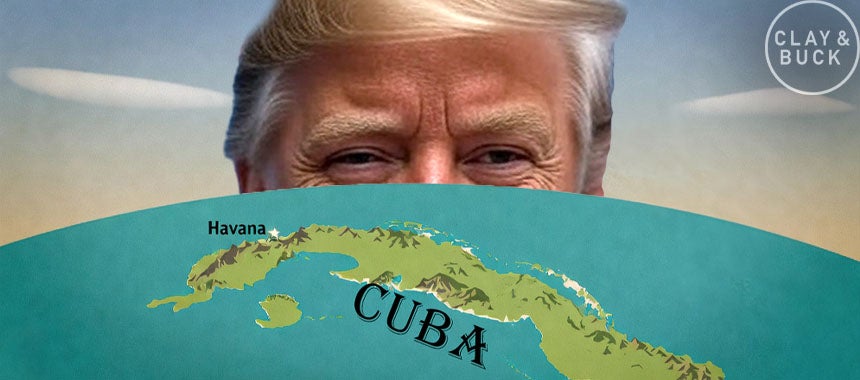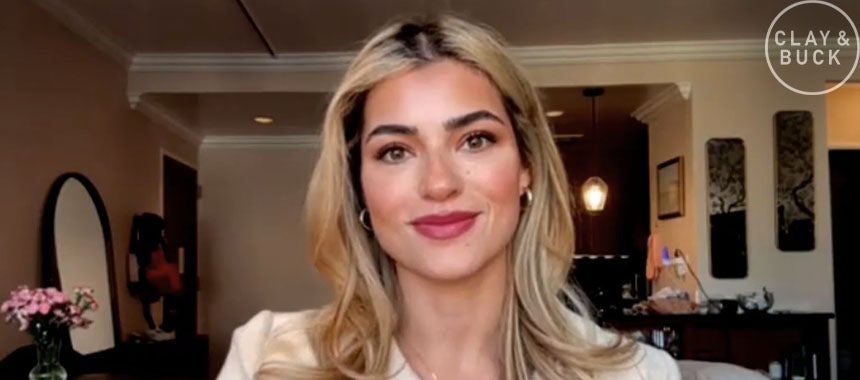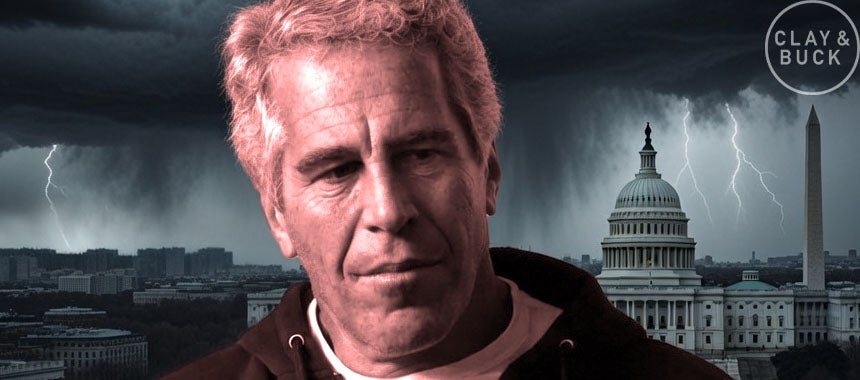Study: Florida, Red States Did Best on Covid
11 Apr 2022
CLAY: I want to give credit ’cause I went and read this study after I saw it linked in the Wall Street Journal. You can also go read about it at OutKick. Three guys, University of Chicago economist Casey Mulligan and Stephen Moore as well as Phil Kerpen of the Committee to Unleash Prosperity, they decided, Buck, you know, for so much of this covid discussion over the past two years it’s been only focused on cases and deaths.
And the impact of anything other than cases and deaths has been completely ignored. When the reality is, any sort of intelligent analysis would have understood — and I think that that is becoming more paramount now — but when you shut down schools, that is going to have long-lasting impacts. And when you shut down economies that is going to have long-lasting impacts, in health as well.
In other words, covid doesn’t exist in a vacuum. And so they said, let’s analyze how the individual states responded — we’re fortunate thanks to federalism we have 50 different state laboratories to effectively analyze. And they said, okay. Let’s look at it. They completely evened out the metrics on age because some states are older and we know that covid disproportionately impacted the elderly so even looking at the number of deaths is not always fair because of age analysis and everything else.
So they analyzed everything, evened it all out, and gave all 50 states a score based on how they did for health, based on how they did for their economy, and how they did on keeping schools open. And, Buck, I thought this was intriguing. The best state, the best state in the nation by their metric, Utah. Utah did a better job of balancing out all three of those things than any state in the country. The worst state, New Jersey.
 And overwhelmingly — we’ll run through some of this data — the red states handled covid better than the blue states did. Here were the top 10, Buck. Utah, Nebraska, Vermont, Montana, South Dakota — this one is gonna get tongues wagging — Florida, which is a big state that did really well — New Hampshire, Maine, Arkansas, and Idaho. All right. Those were, according to these metrics, the ten best states at handling covid. Anything surprise you in those 10, Buck?
And overwhelmingly — we’ll run through some of this data — the red states handled covid better than the blue states did. Here were the top 10, Buck. Utah, Nebraska, Vermont, Montana, South Dakota — this one is gonna get tongues wagging — Florida, which is a big state that did really well — New Hampshire, Maine, Arkansas, and Idaho. All right. Those were, according to these metrics, the ten best states at handling covid. Anything surprise you in those 10, Buck?
BUCK: Nothing surprises although they’re going to say just based on who’s involved in these studies. It’s partisan and we shouldn’t put a dollar value on lives, you know, just get ready for it. The left will —
CLAY: — save just one life. Remember all those tweets we got when everybody was shutting down?
BUCK: That theory, by the way, is being put to the test in Shanghai, which we will be talking about as well.
CLAY: Yes.
BUCK: True Fauciism. “If it saves but one life we can make you all miserable.” That is on display right now in Shanghai where they have a lockdown of over 20 million people that is causing essentially a mass mental and emotional breakdown, an understandable one, by the way. We’ll talk about that in a few moments, just to give you a vision of why this fight is so important in this country.
I would say this about the states that did really well. They are, with the exception of Florida, small population and low density. So, it’s much easier to deal with a respiratory virus in the context of, let’s say, Vermont or South Dakota than it is in New York, California, Washington, D.C. To be fair, right?
CLAY: Yeah.
 BUCK: But the big outlier here is Florida, which is a big state with a lot of cities and a major population — major population centers and the fact that it did well when you look at these variables is, of course, a bigger repudiation because remember a lot of these other states didn’t open as early — I’m sorry even one that did well, didn’t open as early as Florida, were not as clear on their policies meant to defend individual rights.
BUCK: But the big outlier here is Florida, which is a big state with a lot of cities and a major population — major population centers and the fact that it did well when you look at these variables is, of course, a bigger repudiation because remember a lot of these other states didn’t open as early — I’m sorry even one that did well, didn’t open as early as Florida, were not as clear on their policies meant to defend individual rights.
Remember, Florida didn’t say the state won’t mandate vaccines. Florida said that businesses can’t mandate vaccination, either. Some states were a little wimpy on that one, even some very, very red states decided that it’s “a private company, they can do what they want,” which I absolutely hate as an answer. People said yeah, try that sometime, set up a private company, only hire women — actually that would probably work — only hire men — that would not work — and then say, “It’s a private company, I can do what I want. ”
So the reality here, Clay, is when you look at multivariable analysis, fancy way of saying —
CLAY: Which is what intelligent people should do.
BUCK: Should have done all along.
CLAY: Yes.
BUCK: Then the Florida approach for major population states was the right approach. The data proves it, shows it. It was also right approach on schools and school masking policy. They opened, it was fine, they didn’t have all this death and despair in the school system.
And, you know, now — now we’re getting this phase, Clay, where we’re now two years — I want to go back. I want to even find the first time I ever had you on my radio show, maybe we can play a fun throwback clip from it, ’cause it was about two years ago this month. I forget what exactly the date was. Because for two years it has been clear: Old people, older people and those with comorbidities are at risk. Everybody else, this is basically a really contagious flu and you should just deal with it. For two years that’s been the case, for now.
CLAY: And here are the 10 states. I gave you the 10 states that did the best. Here are the 10 states that did the worst, Buck. And what’s interesting here as I run through some of these states are not dense, meaning they don’t have the same population density as other locations. Some just had really bad Democrat governors and mayors who were dominating.
 New Jersey. Murphy almost lost over this. And there’s a fascinating article we talked and shared over the weekend in the Wall Street Journal talking about New Jersey parents and how many of them are running as fast as they can from the Democratic Party over covid because they’re so furious at the way that their kids have been treated. But New Jersey, worst in the nation. Washington, D.C., second worst in the nation, New York, third worst, followed by New Mexico — and, by the way, I believe we got a lot of listeners out in New Mexico. They have completely been under the radar.
New Jersey. Murphy almost lost over this. And there’s a fascinating article we talked and shared over the weekend in the Wall Street Journal talking about New Jersey parents and how many of them are running as fast as they can from the Democratic Party over covid because they’re so furious at the way that their kids have been treated. But New Jersey, worst in the nation. Washington, D.C., second worst in the nation, New York, third worst, followed by New Mexico — and, by the way, I believe we got a lot of listeners out in New Mexico. They have completely been under the radar.
I got a good buddy who’s in Albuquerque who’s a doctor out there that I was in college with. They have locked down oftentimes in New Mexico on a crazy level. Most people haven’t paid attention because the population, by and large, of New Mexico is not that large, Buck. But for everybody out there listening to us in New Mexico, I think the insanity that you guys have dealt with has been wildly underrated.
California, Illinois, Maryland, Nevada, Connecticut, and Pennsylvania are the 10 worst. Overwhelmingly Democratic governors, overwhelmingly locked down, kept kids out, their economies have tanked. Again, four of the five worst — New Jersey, D.C., New York, and California — toss in Illinois there as well — these are also, Buck, not surprisingly the places that have lost the most population.
We talk about this all the time and I think it’s a significant factor. If a place like Florida was truly putting people in more danger, then people wouldn’t be moving there overwhelmingly. They’d be flooding into California and New York with their families because they’d be saying, “Oh, my goodness. We have to go here, to protect the safety of our families.” Instead the opposite is occurring.
BUCK: Clay, I was just in Florida for the weekend and was at Mar-a-Lago with our good friend —
CLAY: You saw our buddy Trump.
BUCK: I was with 45. We had a nice chat. He loves the show, says we’re gonna be critical going forward. And it’s fun to see the big guy, man, he’s so entertaining and he’s great.
I was there, Michael Berry, our good friend from Houston —
CLAY: Guest host.
BUCK: — our wonderful Houston affiliate. He was — and guest host on our show — he put together an event at Mar-a-Lago.

But I just bring up the Florida situation because I took a tour of some areas with a local near West Palm because West Palm is too expensive, basically, and what this guy who lives in Florida for 60 years told me is that everyone is so excited about how great things are in the state. The only problem is that now it’s like a Florida real estate arms race all across the state. You’ve got a house on the Panhandle. It’s not in one place. It’s all over the state. People are moving in such big numbers that the real estate prices, if you already live there, it’s great for the home that you could sell, but if you want to stay there you gotta buy into a super hot real estate —
CLAY: You’re gonna roll it right back in. Same thing’s happening all over Tennessee, all over Nashville in particular. There were no homes for sale, and it’s great if you’re moving from California or New York ’cause they’re locking in also a ton of people moving from the Chicago areas. They’re locking in really high rates and then cashing in and buying better places in other locations — Tennessee, Texas, Florida, places like that.
But, man, it gets more challenging in you’re a renter in some of these communities you didn’t buy and now you’re like, well, I — I maybe could have but now the prices have skyrocketed.
Recent Stories

Manufacturing Delusion Is On Sale Now!
Buck's book opens at #4 on the New York Times bestseller list. Get your copy today!

President Trump Says We May Just Do a “Friendly Takeover” of Cuba
Capitalism, and President Trump, can make Cuba great again (especially if the Supreme Court rules that the communists have to give back all they stole).

Political Commentator Debra Lea Talks the Mood in Israel and the Deadline for Iran
Just back from Israel and with an eye on Iran, Debra starts by making a point: She's not in the Mossad.

We Would Never Cover Up for People Accused of Epstein’s Crimes
If you think members of the administration are covering up for heinous acts against children, you're wrong.






